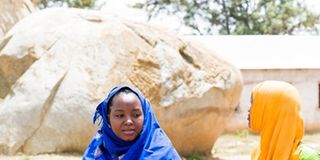It takes more than one arm of the law

What you need to know:
Under the National Plan of Action to End Violence Against Women and Children (NPA-VAWC), changing social norms and attitudes to protect women and children in ending child marriage and FGM has been given great precedence. It is important to raise awareness, to demystify wrong beliefs and counter negative norms with correct information.
Tanzania passed a law to criminalise female genital mutilation (FGM) in 1998, in the Sexual Offences Special Provisions Act (SOSPA) which amended the Penal Code. The law states:
169A.-(l) Any person who, having the custody, charge or care of any person under eighteen years of age, ill-treats, neglects or abandons that person or causes female genital mutilation or procures that person to be assaulted', ill-treated, neglected or abandoned in a manner likely to, cause him suffering or injury to health, including injury to, or loss, of sight or hearing, or limb or organ of the body or any mental derangement, commits the offence of cruelty to children.
The penalty for this includes imprisonment for not less than five years and not exceeding 15 years, or a fine not exceeding TSH 300,000; or both.
Mama Jose from Singida, was one of the women who met with Doris Mollel and she narrated her experience with the law.
“I underwent FGM when I was very young, in accordance with our customs. I came to realize I was cut when I saw other children younger than I, some as young as four years, undergoing the same. My friends and I would go peek on them as they were being cut.
They would line up about ten or more girls and cut them, one after the other. We would watch them and if they chased us, we would wait for them to be brought out and we would peek at them.
Back then it was actually a very old woman who used to cut girls. She would be sought for especially during the dry season. During that time a lot of girls would die if they were not cut.
They told us they did that to protect the girls from the lawalawa infections [believed to be a bacterial infection].
When my four year-old daughter fell seriously sick, I took her to the hospital but it did not help. And I knew I had to keep to my customs. I cut my daughter and five days later she was well again.
I had twelve children – nine are still alive – and five of them are girls. I only performed FGM on two of them because they fell seriously ill.
What hurts me the most when it comes to FGM, is being sent to prison with my infant child. I was arrested however we had not been well informed about FGM back then.
On 13 January 2018, they came to arrest me here at home. There was a woman [police officer in plain clothes] who came with the village executive officer to my house and they asked to speak with me. They asked me if I had performed FGM on my daughters and I denied it. They told me that I had to go with them to the hospital with my daughter to check her.
I didn’t know that there was a police car outside waiting for us. So they took us to the hospital, together with another lady who was accused of the same. Right from hospital, we went back to get my one month-old baby and they took us both to police detention. I was finally detained for seven days. I was taken to court and after they read my case, I was held in detention for one month and 13 days, until I was bailed out.
I attended court every other week until the court reached its verdict in June. The judge wasn’t happy that I had lied to the court at first. Luckily I was sentenced to serve four months on parole, because of the baby.
Did I involve my husband? Well, he was not around when I had to cut my daughter. But I explained to him that our daughter was very sick and she had the same signs as the previous one we had cut. After we discussed it, he agreed that we should cut her too.
I know that it was people in this village who set me up. And I vow that if I hear of any FGM being performed here, I will also tell on them. I suffered a lot in that prison with my child. I would have to leave her every morning when all detainees were taken to work and come back in the evening to find my baby crying.
When my husband heard that I was detained, he ran away and even his phone was switched off. The children were left alone at home. There was no one to take care of them. I haven’t heard from one of my sons since then, to date.
I swore I would never repeat cutting any of my daughters, even if God gave me more children. I even advise my fellow women to stop FGM; prison is horrible.
The law has an important part to play in ensuring the abolishment of FGM by holding perpetrators accountable.
Under the National Plan of Action to End Violence Against Women and Children (NPA-VAWC), changing social norms and attitudes to protect women and children in ending child marriage and FGM has been given great precedence. It is important to raise awareness, to demystify wrong beliefs and counter negative norms with correct information.
In the coming episodes we will look at the health implications driving and caused by FGM.


